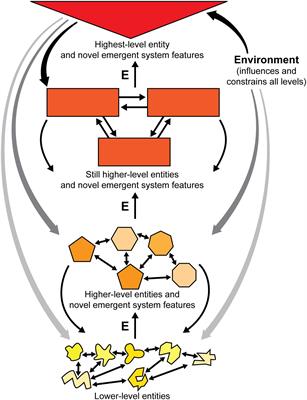Phenomenal Consciousness and Emergence: Eliminating the Explanatory Gap
The role of emergence in the creation of consciousness has been debated for over a century, but it remains unresolved.

In particular there is controversy over the claim that a “strong” or radical form of emergence is required to explain phenomenal consciousness. In this paper we use some ideas of complex system theory to trace the emergent features of life and then of complex brains through three progressive stages or levels: Level 1 (life), Level 2 (nervous systems), and Level 3 (special neurobiological features), each representing increasing biological and neurobiological complexity and ultimately leading to the emergence of phenomenal consciousness, all in physical systems. Along the way we show that consciousness fits the criteria of an emergent property---albeit one with extreme complexity.
The formulation Life + Special neurobiological features → Phenomenal consciousness expresses these relationships.
Then we consider the implications of our findings for some of the philosophical conundrums entailed by the apparent “explanatory gap” between the brain and phenomenal consciousness. We conclude that consciousness stems from the personal life of an organism with the addition of a complex nervous system that is ideally suited to maximize emergent neurobiological features and that it is an example of standard (“weak”) emergence without a scientific explanatory gap. An “experiential” or epistemic gap remains, although this is ontologically untroubling. .
Read the full article at the original website
References:
